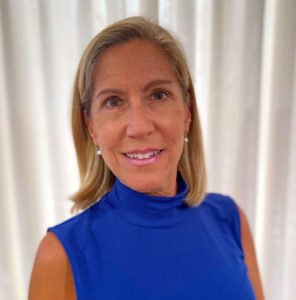 Ed Talk is a biweekly opinion column. The views expressed are solely the author’s.
Ed Talk is a biweekly opinion column. The views expressed are solely the author’s.
The political divide in the United States in the wake of the 2020 presidential election is palpable. In a recent Pew Research poll, 90% of Biden supporters and 89% of Trump supporters said that the election of the other candidate would lead to lasting harm to the country.
For the next generation of leaders to find common ground and advance solutions to pressing national issues, we must teach students how to engage in civil dialogue.
The Sorensen Institute for Political Leadership, part of the University of Virginia, promotes “effective leadership, working together, building trust, ethics, and a mastery of public policy issues” to “strengthen the quality of governance and community service at all levels and help restore public confidence in our political system.”
One of Sorensen’s programs is the High School Leaders Program, which teaches about 32 students each year how to engage “positively and effectively” in public policy debates so that they can make a positive difference in their communities. According to Sorensen Director Larry Roberts, students from across the Commonwealth with different cultural backgrounds and political beliefs learn to listen to each other, challenge stereotypes about political parties, focus on policy, and work together to find solutions.
Another Virginia program to promote civil dialogue and an understanding of the legislative process is the Virginia YMCA’s Model General Assembly (MGA). After preparing legislation, about 500 students travel to Richmond each year for three days where they meet in the General Assembly to debate their bills.
Erik Van de Poll, Arlington YMCA District Executive Director, says that “MGA has taught Arlington students how to better understand the perspectives of students from different parts of Virginia. This understanding has helped them to build consensus for their own legislation, and ultimately to be more effective advocates.”
Both Sorensen and MGA charge fees and enroll a small number of students, limiting the reach of these effective programs.
Public schools have an important role to play here. The Virginia Standards of Learning (SOLs) in History and Social Science include understanding “the rights, duties, and responsibilities of citizens” and “respecting differing opinions.” However, the SOLs do not do not emphasize the skills that students need to engage in civil dialogue about policy.
Work on the revised 2022 SOLs is underway and is expected to include a more skills-based approach, according to APS Social Studies Supervisor Kerri Hirsch. In the meantime, Hirsch provides APS teachers with resources so that students can better understand diverse perspectives, discuss these respectfully, and develop arguments to support their views based on facts. This includes the use of Checkology, a resource to help students use critical thinking skills to separate fact from fiction.
What do teachers do when a student’s comments reflect prejudice toward others? Author Robert Jones, Jr. writes: “We can disagree and still love each other unless your disagreement is rooted in my oppression and denial of my humanity and right to exist.” Some teachers do not engage students in discussions of politically charged issues because they do not feel equipped to handle these kinds of situations.
Teachers should have more opportunity for professional development to give them the tools they need to facilitate student conversations about policy. Available resources address setting classroom ground rules, examining one’s own perspectives and bias, and engaging students in projects to help them listen to each other to build understanding of different views.
Empathy is a common theme in the work done by Sorensen, MGA, and APS. Civil dialogue depends on participants listening respectfully to those with opposing views and working to understand their perspectives. Empathy allows us to see beyond labels and stereotypes.
Understanding others’ views does not mean agreeing with them. But it can lead to finding some common ground. This seems a better path to finding solutions to national issues than vitriol and ad hominem attacks.
Abby Raphael served on the Arlington School Board from 2008-2015, including two terms as Chair. She also led the Washington Area Boards of Education for two years. Currently she co-chairs the Destination 2027 Steering Committee, is a member of the Board of the Arlington YMCA, and works with Project Peace, the Community Progress Network, and Second Chance

